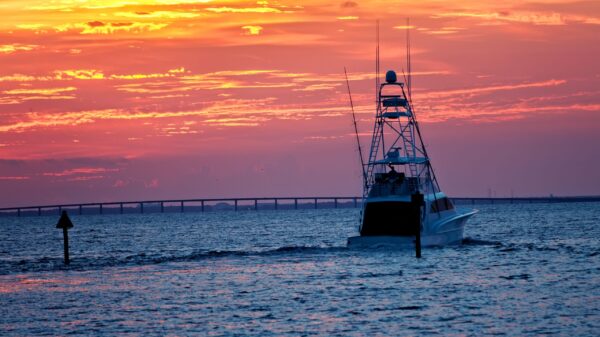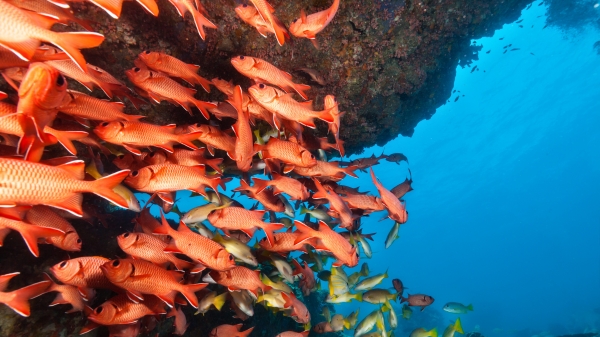By U.S. Representative Jo Bonner
In recent years, coastal Alabama has faced a number of man-made assaults – one the result of a historic environmental disaster, the other the handiwork of overzealous government regulators. While many of our coastal businesses are making a comeback from the tragic BP oil spill of 2010, the same cannot be said of much of our local fishing industry, which has had to battle both BP and Uncle Sam.
Those seeking to fish for one of the Gulf’s most popular fish, Red Snapper, are being subjected to increasingly stringent federal regulations that are unnecessarily threatening the local economy. At the same time, empirical data and anecdotal evidence show the Red Snapper stock is as healthy as it has ever been. Practically anyone who has dropped a hook in the Gulf over the last few years has found it easier than ever to catch Snapper. Frankly, their number and size make them difficult to avoid and their abundance is actually crowding out other marine life at artificial reef habitats. Yet federal bureaucrats continue to consider the Snapper overfished.
This week, Dr. Robert Shipp, three-time chair of the Gulf of Mexico Fishery Management Council, noted researcher and professor of Marine Sciences at the University of South Alabama, testified before the U.S. House Natural Resources Committee that the current management of reef species in the Gulf of Mexico is failing – both the fish and the fishermen. Dr. Shipp voiced support for the concept of increasing the five Gulf states’ fishery management authority to place more control over reef fish in the hands of the states rather than the federal government. This is a concept I have been studying for several months, and I believe the only solution to the problem is legislative action in Washington to return some power to the states.
Last week, I introduced the Gulf Fisheries Fairness Act to extend the state water boundaries of Alabama, Florida, Louisiana, Mississippi, and Texas for the purposes of reef fish management, affording these states greater control over reef fisheries and effectively opening up more Gulf waters to fishing. The Gulf Fisheries Fairness Act will provide Alabama and the other Gulf states the legal authority to manage local fisheries, and our fishermen and tourism industry will gain a lifeline they so desperately need.
The current one-size-fits-all reef fish management policy in place in the Gulf is antiquated and doesn’t accurately reflect the significant reef fishery improvements implemented by our states. Under current law, if federal regulations for Gulf reef fish are more restrictive than state regulations, federal fishing permit holders must comply with federal regulations regardless of where the fish are harvested. This has forced ridiculously onerous federal restrictions on Gulf fishing, including an unworkable 27-day Red Snapper season this year that will put many fishermen out of business.
The Gulf Fisheries Fairness Act resets the state water boundaries for all five Gulf states to an average depth of 20 fathoms (120 feet) or nine nautical miles, whichever is farthest. At present, Alabama, Louisiana and Mississippi have three mile boundaries, while Florida and Texas are set at nine miles.
My legislation has support from other coastal lawmakers, and I am hopeful that a companion bill will also be introduced very soon in the Senate.
On a related front, I am continuing to press the U.S. Department of the Interior to halt its bizarre policy of literally blowing up abandoned Gulf oil rigs, killing thousands of Red Snapper and other species in the process.
These abandoned rigs have become productive artificial reefs, attracting large numbers of Red Snapper and other marine life. Not only is the Interior Department’s practice of destroying this habitat detrimental to Gulf ecology, but it demonstrates a hypocrisy of big government, with one federal agency severely limiting fishing for Red Snapper while another indiscriminately kills the very same fish and destroys habitat essential to its stock.
I have personally spoken with and written to Interior Secretary Salazar and met with Interior Department officials to voice my strong objection to their “Idle Iron” policy of blowing up abandoned Gulf oil rigs. As Dr. Shipp testified before the House last week, “Far better would be to dismantle these structures, lay them on their sides on the bottom, as is done in the ‘rigs to reefs’ program off Louisiana.”
If the federal government does not cease its destructive and counterproductive policy of blowing up thousands of pounds of Red Snapper, then a legislative solution will have to be pursued. I am talking with other Gulf lawmakers about legislation to address this problem. Last Congress, I cosponsored the “Rigs to Reefs Act” to allow abandoned Gulf oil rigs to be safely converted to artificial reefs for the benefit of both marine life and our seafood industry.




















































